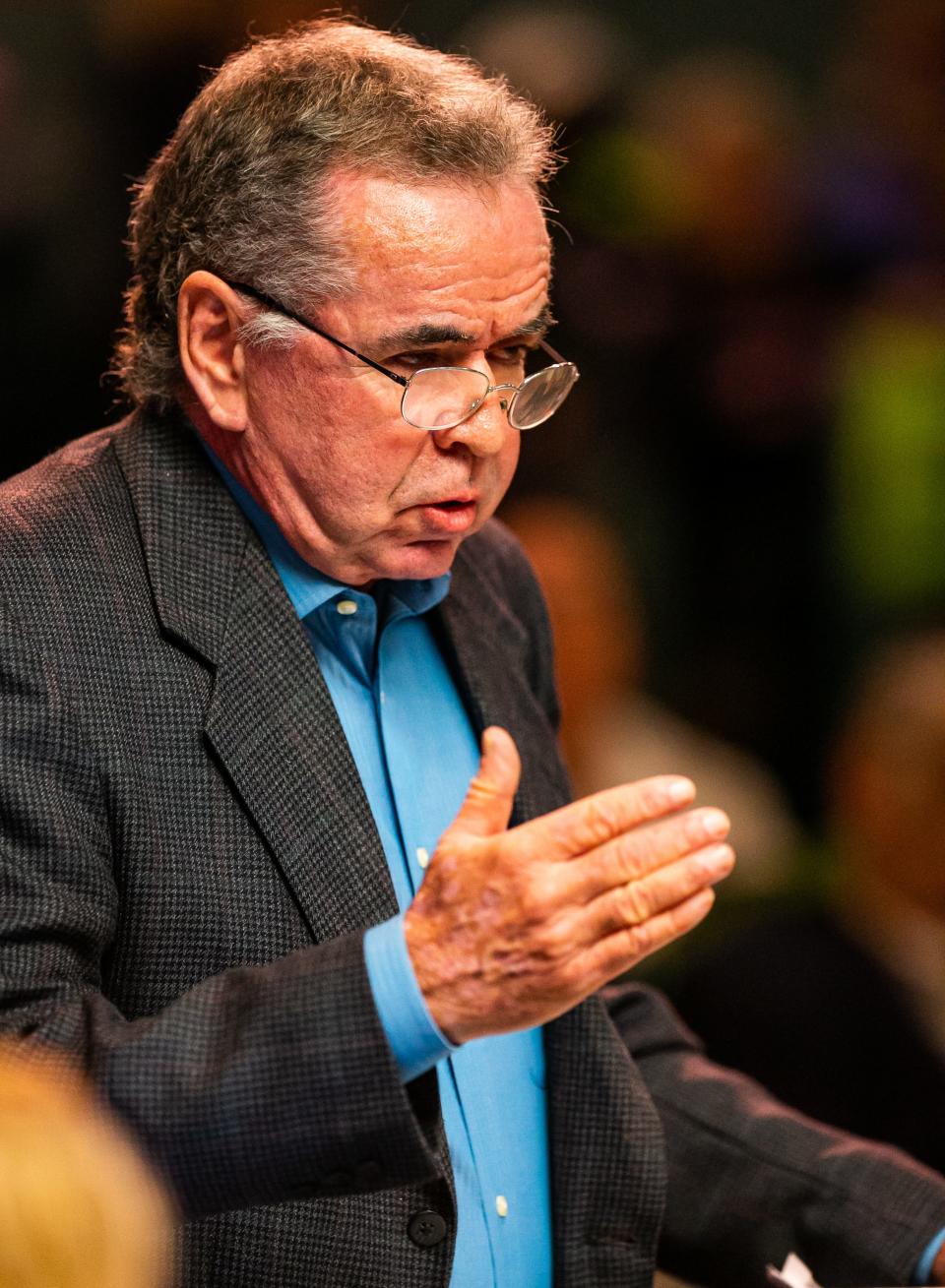Florida won't pursue 4 proposed routes for possible northern turnpike extension
Editor's note: This story was revised at 3 p.m. Thursday to include details from the state Department of Transportation's press release.
The state Department of Transportation on Wednesday told elected officials in northern Central Florida that the agency is no longer pursuing the four proposed routes for a possible northern extension of Florida's Turnpike. Instead, the state will concentrate on improving Interstate 75.
DOT followed up its Wednesday messages to elected officials with a press release issued just after 1 p.m. Thursday.
In that release, DOT Secretary Jared W. Perdue is quoted as saying: “The goal of every project is to ensure all needs are met, environmental concerns are addressed, and community characteristics are protected. The region and local community should be assured that as we continue to refine and develop viable corridor concepts for this area, it will include extensive engagement with community leaders and the community as a whole.”
The DOT's decision, first reported Wednesday by Mike Wright's Just Wright Citrus blog in Citrus County, is a big win for environmentalists, who have tried to convince the state to abandon the idea of extending the turnpike from its northern terminus at I-75 in Wildwood all the way northwest to U.S. 19 in Levy County.
Dunnellon City Council: We don't want northern turnpike extension
Water management district to FDOT: We 'cannot support' proposed Florida Turnpike routes
Needing more time: State gently taps brakes on timeline for possible northern extension of Florida's Turnpike
Those same anti-extension forces also spent months applying pressure to local elected bodies, and with great success: Many, including the Dunnellon City Council, adopted a "no build" stance. The Marion County Commission, on a 3-2 vote, declined to go that far, instead asking to have a seat at the table as the state reviewed options.
It appears state officials have heeded the anti-extension message – for now. "Based on feedback received from across the four-county study area," the DOT says in its news release, "significant concerns were identified with portions of all four initially proposed corridors. The Department deeply values community input and is committed to thoroughly exploring all concerns received during this process."
However, the state characterized its move as a "pause," not an end.
"The Florida Department of Transportation (FDOT) has completed the Alternative Corridor Evaluation (ACE) Study for the Northern Turnpike Extension without recommending a specific corridor," the press release says, "and will not pursue the project any further until options can be reassessed to address concerns of the Department and the community."
Turnpike extension news celebrated
Wednesday's news was met with excitement on Facebook, where anti-extension forces often trade information.
"It's a win for the people, farms and critters!" one woman wrote.
Her comment summarized some of the major complaints that people had about the four proposed routes, three of which passed through Marion County. People opposed to the possible extension said it would ruin rural areas in this part of Florida, would cause environmental problems, and would infringe on wildlife habitat.
"I was gratified," Inverness Mayor Bob Plaisted said Wednesday night. He received a text message from DOT on Wednesday announcing the news. Other elected officials in north central Florida received the news by telephone.
The last big development in this project came in late April, when the state announced it would extend the timeline to allow for more communication with residents and elected bodies.

Charles Lee, Audubon Florida's director of advocacy, said he had not heard Wednesday's news directly. However, he said the development did not surprise him.
For one thing, he said, the project website no longer references the four proposed routes. He also noted that some elected bodies in Marion, Citrus, Sumter and Levy counties – the four counties of the study area – had expressed opposition, as had the Southwest Florida Water Management District.
Kevin Sheilley, president and CEO of the Ocala Metro Chamber & Economic Partnership, said this development did not surprise him. The focus now, he said, must be improving I-75.
Jazmon Lovenguth, an anti-extension activist from Williston, said the news made her happy. She suggested that improving I-75 would solve the state's transportation concerns better than extending the turnpike would. She said the turnpike project was based on "greed, not need."

Dunnellon Mayor Bill White did not get a DOT phone call or text Wednesday. But his phone was blowing up Wednesday evening during a regularly scheduled Dunnellon City Council workshop, so he knew something big was happening.
After the workshop, he told the Star-Banner that the news cheered him and made sense. What the state needs is a better way to get people north, and the possible turnpike extension would be taking them too far west.
DOT officials said in the release that "in the near term, to help address regional and statewide transportation needs, the Department is dedicating resources to prioritize improvements on the Interstate 75 corridor. Much of the feedback received from local communities during the ACE study recommended reviewing and prioritizing solutions for the I-75 corridor as part of the overall process."
This article originally appeared on Ocala Star-Banner: State drops possible routes for north extension of Florida's Turnpike

